Hammo Text and Talk Follow Up
Here's the follow up to the Text and Talk with the Bishop at Hammo 2012 as promised. Those who were there know what I'm talkin' 'bout. If you weren't there, well, you'll get an idea from this video.
Here's the follow up to the Text and Talk with the Bishop at Hammo 2012 as promised. Those who were there know what I'm talkin' 'bout. If you weren't there, well, you'll get an idea from this video.
WWJP?
What would Jesus post?
I have no idea, but I'm guessing it would be a 21st century version of his teachings in the gospels.
You will notice that, I continue to update this website, and have most recently added a "Social Media" page. (See along the top menu, far right.) If you click on that page, you'll be able to connect with me on Facebook, Twitter and You Tube.
Here's my quick run down on how I use Social Media. If you want something more thorough and thoughtful, I suggest you pick up a copy of Keith Anderson's fine book Click 2 Save. I did, and it's quite helpful.
I am not of the camp that thinks, 'if we only did social media right, our churches would be revived.' While most people would not say that, I'm wondering if some actually believe it, judging from comments made on such forums as the ELCA Clergy Facebook group. Don't go there, its a black hole, you'll never escape.
 I do believe that these are new tools that can be useful in ministry, as was my experience while a Pastor at St. Andrew Lutheran Church. I used facebook primarily as a way to reenforce what we were doing in real time. As an example, when our youth went on a mission trip, I would post photos and an occassional short video during the week. Friends, family and congregational members could see what we were doing. It helped bridge the connection from Sunday to midweek activity.
I do believe that these are new tools that can be useful in ministry, as was my experience while a Pastor at St. Andrew Lutheran Church. I used facebook primarily as a way to reenforce what we were doing in real time. As an example, when our youth went on a mission trip, I would post photos and an occassional short video during the week. Friends, family and congregational members could see what we were doing. It helped bridge the connection from Sunday to midweek activity.
As a Bishop, my perspective on how I'll be using these tools is evolving. But, the over-arching philosophy is the same. I see these tools as ways to connect people and parishes with one another. My overal vision is to be a relational synod as opposed to a program delivery synod. In other words, I'd rather see congregation 'A' connect with congregations B, C & D over a new idea that works, as opposed to my Office providing a program for you to use. This concept of a relational based synod ministry is early in my thinking, and it will evolve. I'm grateful to Pr. Nathan Pipho, who coined the phrase and concept during a salmon smackdown session (aka home BBQ) at my home this summer. Several of you are helping to put flesh on this concept, and no doubt a true relational understanding of ministry would only happen if it were built by relationships.
 I'm hoping to use this website and blog, along with Facebook, Twitter, You Tube, etc to help facilitate connectivity throughout our synod. So if you are on any of those platforms, go on over and follow me, so that I can follow you, so that we can all follow the One who sent us.
I'm hoping to use this website and blog, along with Facebook, Twitter, You Tube, etc to help facilitate connectivity throughout our synod. So if you are on any of those platforms, go on over and follow me, so that I can follow you, so that we can all follow the One who sent us.
Did you see the women in August? The amazing way they flew around the track in London and set a world record in the 400 meter relay? Wow, just plain, wow!

If you are familiar with this event, you know the key is in the passing of the baton from one runner to the next. You can be quick out of the blocks, you can be very fast, you can be a great closer, but if the passing of the baton is fudged - well, you are toast. But these women executed better than anyone ever has in this event.
This story was the basis for my final sermon at St. Andrew. I was passing the baton on to the congregation, and we literally passed a gold baton around the congregation during the worship service. Good news - no one dropped it.
So it was rather ironic, surprising, serendipitous and God-infused that on Friday afternoon, not knowing about my closing sermon at St. Andrew, Bishop Margaret Payne sent me a brief email entitled, "passing the baton." The email popped up on my phone, just as I was about to head into the gym for a much needed workout. I saw the title, read who it was from, and suddenly I was overcome with a whole variety of emotions: Excitement, fear and trembling, laughter, tears, responsibility and a sudden pause to formalize the moment in prayer.
Bishop Payne and I have worked hard this summer to insure that the baton pass be as smooth as possible. I am sure that the laps ahead around the track will have there moments. No doubt I will fumble this baton which I have been entrusted with, probably more than once. However, I will endeavor to be the person God is continually shaping in this life and in this role. I look forward to being a faithful, lively and fully engaged bishop.
----------------------------------------------------------------------------------------------------------------------
I awoke this morning, September 1, 2012, as the new Bishop of the New England Synod. I made my way downstairs wondering what would be my first act in this new role. I found a note from Lisa, "The dog has not been fed yet." Ah, profound words, and a reminder that we live our faith in the real world of dogs, and families, and work, and sports, and play, and struggle, and daily, no hourly, no by each and every passing moment, we are always in the presence of the One who is continually forming us.
Downstairs to the basement I went with dog food can in hand, carrying out my faithful first act as a bishop.
I'm just back from vacation, and starting the final preps for beginning my new role as Bishop of the New England Synod - officially beginning Satruday, Sept 1. But first, I thought I'd share one of the many videos that were made as a part of my farewell party at St. Andrew. This one was made by our current Youth Director and his friend, both former confirmation students, high school mission campers, etc. Enjoy!

A brief post to say that we just completed our ten day motorcycle camping trip from Jackson Hole to Glacier National Park and back. It was amazing, exhausting and worth every minute. The photo was taken by a friendly tourist while we were all watching bison in Yellowstone.
I said goodbye to the good people of St. Andrew this past Sunday. They threw a great party on Saturday, and roasted me well. Thank you for the music, videos, stories and skits - plus a great meal. Sunday was our last worship service together, and we did it well, and in true St. Andrew fashion.
I'm off for 2 weeks of vacation with Lisa. It's unlikely I'll be posting anything to this blog until Sept 1. We'll be in Wyoming and Montana on a motorcyle camping trip. Then a weekend in Minnesota to visit her parents. This was all planned last January, but comes at a good time, as we catch our breath before the September 1 start date as Bishop.
Michael Stone has designed the formal invitation to my installation, and I hope you will consider attending. As an fyi, the Lutheran Lizards motorcycle group and I will be having a procession to my installation on the morning of Sat. Sept 29, departing Charlestown at 10 a.m. More info on that later.

I added this video to the "about me" page. Highlights of my election at the June Synod Assembly
It's a way of seeing what all the words we write might look like, if we converted that text to a photograph. I find it to be a resource in visualizing what I'm attempting to communicate. For instance, try dropping your recent sermon or newsletter or word document into wordle, and see what it spits out? You may have thought you were communicating about one thing, be then realize that other words are more dominant.
I copied the text of this blog into wordle as an evaluation tool. Here is what came back - the larger the word, the more often I have used it.
As I look at this, I'm liking what I'm seeing as an emphasis, especially "people" as a dominant theme. I also see leadership, new, well (is that well as in wellness, or just, oh well?) and church. But, I'm also realizing God and Jesus are not too prominent - gotta fix that. Makes me realize I need to balance this blog out with faith, theology and spiritual reflections.
Maybe it's a tool you can use, maybe not - thought I'd share. Try it out http://www.wordle.net
Years ago, Lisa and I had a foster daughter named Laura. She was six years of age when she moved into our home. She was spunky, energetic and always spoke her mind. For about two years, we were her family until she returned to her biological mother. One evening during dinner, Lisa and I were engaged in a conversation. Apparently, Laura had been listening to our conversations for several months, and she interrupted with an empahtic, “Leeeeeeeeeeeeadership! That’s all you guys ever talk about.”
Having a new child in the house made us realize that we did tend to talk about leadership a great deal.
I believe the local church rises and falls on leadership. Both the pastor and the people are responsible for growing their leadership effectiveness. It takes two to tango, it also take two to make a healthy congregation. The world that we live in today demands leadership.
While I do agree with St. Paul, that there are individuals who possess a unique gift of leadership, as there are those who have the many other gifts of the Spirit – teaching, hospitality, generosity, prayer, etc (See Romans 12:3-8) I have also become convinced that leadership is more learned than gifted. Plus, every leader can always be growing in his or her leadership skills.

Leadership can be taught, and it can be learned. In other words, we have a responsibility to be investing in people and developing their leadership potential. On and off over the years, and now four years running, Lisa and I have attended the Willow Creek Leadership Summit. It is one of the best investments we make every year in our continuing education. The program is simulcast all over the world, and there are several sites in New England.
In two days, we are exposed to some great thinking in the area of leadership as speakers from the business, government, non-profit and church sectors outline a series of real world learnings. Years ago we were inspired by an African-American speaker who had moved to Detroit to serve a congregation in the poorest zip code in that down trodden city. His emphasis on faith in action was one of the inspirations for our own faith in action movement at St. Andrew, and later lead to our Do What Matters service projects in Springfield in 2011.

Each year I will hear someone speaking on an area that assists me in my ministry - perhaps it's in the area of recruiting volunteers, or leading a balanced life or planning or time management. The benefits are worth the cost of the event.
Now some of you may wonder what is a Lutheran pastor now bishop doing at an evangelical leadership conference? Isn’t their theology different than ours? What if someone says something that isn’t doctrinally sound? Is there a danger of being influenced in some way that may distract us from our Lutheran identity? 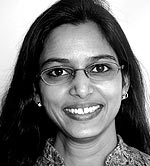
I’ve got a multitude of responses to these questions and concerns, but you don’t want to be reading this all day. So briefly. 1. Hello! This is what our theological education is designed to do. Namely, help us engage, discern and make intelligent decisions. Have I ever heard something at these conferences that raises an eyebrow? Of course. I always operate on the assumption that we are smart people and can think for ourselves. 2. The Lutheran faith has much to offer both the world and the whole spectrum of the Christian church. But, we have to stop living in this Lutheran ghetto, where we think "our way is the only way and the right way." We can learn from others, and vice versa. I attended both Union Theological Seminary in New York City, as well as Fuller Theological Seminary in Pasadena, California. These two seminaries represent either end of the intellectual seminary education in America today. I benefitted from the diversity of perspective, and had to clarify my place as a Lutheran in both settings. THat was a challenge, it was a fun challenge.
I’ve learned about prayer and spirituality from Episcopalians and Roman Catholics. I’ve learned about family systems from a Jewish rabbi. I’ve discovered new understandings in public speaking from secular marketing people. I’ve been shaped in my views of human sexuality by people older and younger than I. I’ve come to understand my position of privilege in this world from people of different racial and ethnic backgrounds. Why can’t we learn about leadership from fellow Christians?
It’s a chunk of change to attend but probably the best dollars you’ll spend on continuing education this year, and by the way, this is not just for pastors. If you are in the business world, there is great stuff for you as well.
More information at this link here
This letter went out yesterday to all the rostered leaders of the synod. I thought I'd share it with all of you. I've added visuals here to make it more bloggy oriented.
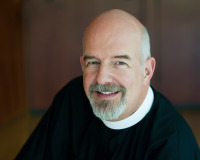
July 31, 2012
A message to rostered leaders of the New England Synod from
Bishop-Elect James E. Hazelwood
Dear Colleagues, Congregations and Collaborative Cohorts,
I trust and hope you are all having a relaxing and enjoyable summer here in New England. I’d like to take this opportunity to write to you about a few matters.
First, I am grateful for your vote of confidence in me as your newly elected bishop. The weekend of June 8, 9 & 10 may be a distant memory for some of you, but for me it remains a vivid reminder of how the Holy Spirit can work among us in surprising ways. As you may already know, I begin my call on September 1, and the installation service is scheduled for 2:00 p.m. on September 29th at Trinity Lutheran Church in Worcester, MA.
Since early June, I have begun the process of transitioning from my current call as pastor of St. Andrew Lutheran Church in Charlestown, RI. I can tell you that saying goodbye to this community I have served for nearly 20 years, has not been easy. And yet, I am pleasantly surprised at the maturity with which the people of St. Andrew are moving through this time. I have also been spending time transitioning into the office of bishop.
 Bishop Margaret Payne and I have begun a series of conversations, which are intended to help make as smooth a hand-off as possible. I am immensely grateful for these meetings, but even more so for her dedication and leadership as our bishop for these past twelve years. She has been an exemplary servant and leader here in New England, as well as across the wider church. I have always believed that following a gifted leader, while more challenging, sets the stage for healthy long term progress. She has placed us in an excellent position for our future as God’s people here in New England.
Bishop Margaret Payne and I have begun a series of conversations, which are intended to help make as smooth a hand-off as possible. I am immensely grateful for these meetings, but even more so for her dedication and leadership as our bishop for these past twelve years. She has been an exemplary servant and leader here in New England, as well as across the wider church. I have always believed that following a gifted leader, while more challenging, sets the stage for healthy long term progress. She has placed us in an excellent position for our future as God’s people here in New England.
Second, I’ve had numerous enquiries and suggestions regarding what I should attend to first as I begin this new role. I am grateful for your ideas, and welcome them. As I announced at the assembly during the question and answer period, it is my number one priority to spend the first year connecting with the people and parishes of this synod. My stated goal in that moment of Q & A was to visit every congregation in our synod within one year. While some have suggested that this goal is not possible, and I should consider revising it – I remain committed to this goal. Why? I believe in understanding one’s context before initiating any goals, vision or priorities. The value of knowing who we are together should not be underestimated. In the words of one colleague, I am approaching the office of bishop in the same manner a mission developer gets to know the culture and context before starting a new mission.
Obviously, there are not enough Sundays in a year to permit a visit during worship with every congregation in the synod. Some visits may include an informal conversation with a pastor, others a structured discussion with a council, still others may be a meal with parishioners. If you or your church would like to arrange something, please feel free to contact me via Lyn Morin at 508-791-1530 or lmorin@nesynod.org.
In addition to more informal gatherings, I am also planning several opportunities for more structured time. The first is an initiative called Bishop-in-Residence. I want to thank Pr. Bill Bogholtz for this suggestion. I will travel to and reside in a region in our synod for a period of about five or six days. This will be a time for me to visit congregations, engage faith explorations, meet in people’s homes for meals, lead worship, etc. I have begun planning the first of these with the three deans of the Vermont, New Hampshire & Maine conferences for the week leading up to the first Sunday in Advent. (November 28 to Dec. 2) We are working out the details, and more information will be forth coming. A second initiative is Bishop-in-the-city, a concept borrowed from Pr. Keith Anderson. I am working with lay people from Redeemer, Woburn, MA in planning the first of these for Wednesday, October 17 in Boston. The idea is to intentionally go where people from our congregations work. The event is designed for lay people, but anyone is welcome. We will be having lunch together in Boston, and I’ll be engaging in conversation about vocation and ministry. We will engage these two ideas, evaluate, adjust and then take them elsewhere in the synod. If you are interested in being a part of these future events, please let me know.
Third. Another popular question has been around the area of staffing for the office of Bishop. As you may know from the budget that was approved at the synod assembly, financial restrictions have forced us to reduce the synod staff by one half time position. So we begin together with fewer resources at our disposal. Over time these challenges need to be taken into consideration as we make staffing plans. In the nearer term, I have asked Pastors Ted Asta, AliceKerr Laird and Tim Roser to remain in their current roles for a transition period. During that time,I will be analyzing our current needs as a synod. This analysis will include many conversations with people throughout the synod, the deans of the conferences, members of the synod council, as well as my own sense of priorities in the area of mission. Pastor Lisa Hazelwood will be stepping away from her position for the time being, to focus attention on the transition process at St. Andrew Lutheran Church. The Doing What Matters process will continue with a leadership team under the direction of Kim Bergstrand. I will be taking the initiative to make changes to our communications team, as Sister Virginia Strahan, Kathy Read, and Pastor Tim Roser conclude their responsibilities in the communication area on August 31. Barbara Lamson, Cathy Schlichte, and Lyn Morin will also continue for this transition period. I believe taking the time to plan carefully, and with intention, is the wisest move at this point in time.
In the area of communication, I want to announce to you that I have already begun actively communicating via my newly established website and blog. You can view this site off of a link from the current synod website or directly at www.bishoponabike.com. I am an active practitioner of the wide array of technological forms of communication, and I invite you into the conversation. In addition, I am developing an online e-newsletter, which will be a supplement to the NES news. If you would like to subscribe, simply go to my website and look for the newsletter section to sign up.
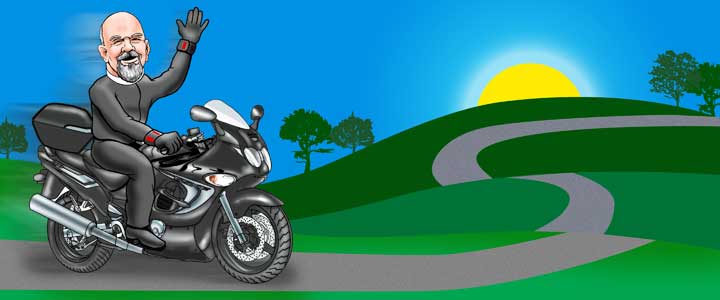
Finally, I look forward to serving you as your bishop. These are challenging times, but I also believe that these are times for us to begin exploring new ways of doing and being the body of Christ. I look forward to engaging in mission with you.
In Christ,
James E. Hazelwood, Bishop-Elect
New England Synod
Pastor Keith Anderson, formerly a Red Sox fan, now relocated to the land of the Phillies (hmmmm, both teams are struggling this year, is there a connection?) Some of you know Keith's fine work in ministry in general, and specifically on the digital frontier. I highly commend you to his website and blog.
In particular, an article today entitled, "What Young Clergy Want You to Know." He's hit another homerun, as he helps us all understand and value young adults in ministry.

Keith has also written on the subject of Minstry in the Digital Era, and his book rests quietly on my Kindle. I'm hoping he'll autograph the book with a Sharpie. We'll have to get Keith back up here in New England for a workshop in the next year or so, as we explore the various tools at our disposal for technology and ministry. One of my passions is communications via the spoken word, photography, video, the web and that 500 year old phenomenon - ink and paper. I'll be seeking out people in New England and beyond, who have knowledge and wisdom in this field.

I was asked to fly down and attend the ELCA National Youth Gathering in New Orleans, but just could not swing it with all my commitments at St. Andrew. So instead, I worked with Tim Roser, and we came up with this idea for a video message. They held a worship service with roughly 450 New England Synod folks attending the gathering. This video is what I prepared. It was shot next to a U-haul truck while I was on a Mission Trip with our own High School students from St. Andrew.
That link you see will take you to an enewsletter, I just sent out to the congregation of St. Andrew Lutheran Church. It's one of many in a series of communications with the people of the congregation I am currently serving. This one attempts to address two things at the same time. First, I'm trying to help all of us come to terms with an ending. This departure has been a bit sudden and unexpected, so I find myself continually needing to remind everyone what is reality. This includes myself. The second purpose is to begin to layout some boundaries as I begin a new call, and the congregation begins a new time in its life.
We have all heard horror stories of Pastors who stay in the congregations they serve, meddle around, or allow family members to do so. This is wrong, wounding to the congregation, usually reflects unresolved factors in the ministers family of origin, and is just plain stupid. Now that I've got the chastisement out of my system, let's look at the advantages of leaving well.
Roy Oswald wrote a little monograph years ago for the Alban Institute, I think it was called, Running through the Thistles. A good resource for its time, and still offers helpful perspectives on how to leave a congregation. Ed Friedman took the topic to a whole new level in his book Generation to Generation. Elizabeth Kubler Ross did great work on the grief process in death and dying. So my thoughts on this subject are influenced by these writings, as well as 53 years of saying goodbye.
Saying good bye is our last great gift to a place, a people, indeed a planet. It's true in geographical moves, pastoral call changes, and in death and dying. I recently buried a 58 year old man in our congregation. His last month in the hospital was the greatest month of his life. He said goodbye to all of us in such a way that was healthy and helpful. Indeed, how we die may be our last greatest gift to our family and friends. In a similar way, how we leave a congregation may be our last great act of ministry -for them as well as for ourselves. Here is what I'm trying to do:
1. The least important but still necessary tasks is to wrap up a few loose ends. These are essential but at a certain point you begin to realize that you are avoiding the bigger issues. I had one major piece of work to do before leaving, and that was to file an application to the State of RI for a new non-profit we are starting. The federal forms will be another persons job, but I said I would do this one back in June before the assembly. I did that yesterday. We tend to think that all the tasks are ever so important. One Pastor told me he spent the month of August writing a whole new Sunday School curriculum for the church before he left. The congregation never used it. And he realized, he was avoiding the more important issue.
2. The real task is the emotional process of leaving. How do I balance my own needs to say goodbye well, and the needs of the congregational members? How do I spend my limited amount of time with people in the church - I can't visit everyone at home in a 700 member congregation? How do I make clear what are the expectations going forward? These are the more important questions. Rather than come up with a rigid plan, I'm choosing to allowing a certain flow, responding to invitations for coffee or lunch, setting up one last meeting of the Bible Study group, stopping to chat at the grocery store when I run into people. The key is how I engage. Having said that I'll be more fluid, I'm coming back to this point in my edit to note that, I did infact set up three formal meetings in the week after I was elected Bishop. Anyone could come, and ask any question that they wished.
3. Am I monitoring my own anxiety? A couple people have expressed their own anxiety to me, which is natural, but how am I responding. I've tried to be open and honest. Are you glad to be leaving us? I'm entering this with mixed emotions, excitement for the next step in my life, but also deep loss at saying goodbye to St. Andrew. That's an honest answer cause it's true. There have been times when I've been tempted to rescue people from their own emotions. A few times, I've not responded in the best way. I'm working on this as best I can.
4. I know there is a fourth and a fifth, but I've run out of time this morning, as I'm off to Beach Camp with 23 middle schoolers. Somehow that's a part of this leaving well, going places, doing things with people, just being there.
I'll let you know what else I learn.
You may or may not be a fan of Pastor Rick Warren, I'm a split decision -then again, I'm a split decision on myself. But, this little clip tells us something important. What makes a healthy church? There are no quick answers, but good clues. "In it for the long haul." It's certainly been true for me in staying at St. Andrew for nearly two decades. Check it out.
And by Clergy, I also mean deaconess, AIM’s, church leaders, and, well, everyone.
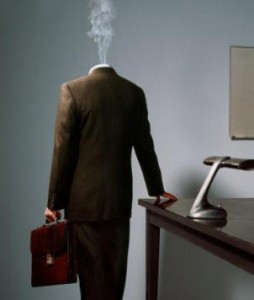
In 1992, I begin to seek a new call. I had served a church and school in Brooklyn, New York for a little under six years. It had been my first call, it was challenging in a number of ways, and after that time and work – I was burned out. Toast!
When I made the move to Charlestown, Rhode Island in 1993, I made a commitment to be in ministry for the long haul. That meant finding a balance to work, life and play. While I love the work of ministry, I also wanted to be someplace for the distance – I was making the shift from sprinter to marathon runner. Through a series of conversations with Roy Oswald, former Alban Institute consultant, and now pitcher in Major League baseball, I came up with a plan. Much of this is based on his book, which I highly recommend to you.
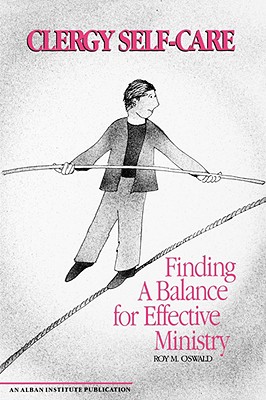
Here is what has worked for me, beg, borrow and steal what works for you.
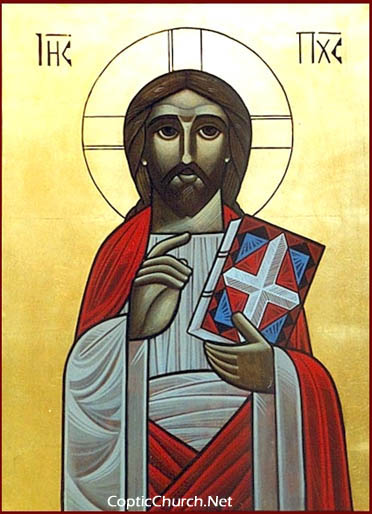
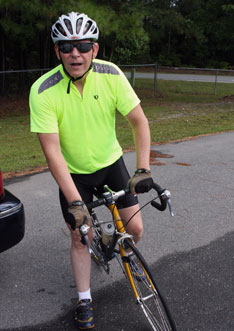

This is what works for me. I’m not perfect at it – I’m still a sucker for cookies and ice cream, I occasionally sluff off the afternoon workout and sometimes think, “oh there is so much work to do, I can’t take time for me.” But, I’m committed to this marathon, and now that I’m serving as bishop (or soon will), I’m realizing the importance for Self Care. So as I enter this new calling, I’m also hearing a calling from God to take care of myself along the way.

In the late 1990’s I struggled to get our high school kids to go on a week long summer mission trip. All of my pleading, and various other manipulative techniques failed. Then, Heather Bedard, a high school junior traveled with her aunt to Mexico for a week long short term mission trip. Her aunts church, based in Florida, had a history of mission trips. Heather came back so enthusiastic about her experience, that she alone was responsible for recruiting more than half of our youth for a domestic mission trip to West Virginia. That was all it took. The power of one person to change a congregation.
Since the summer of 2000, we’ve had an annual week long summer Mission Camp for high school youth. The concept is quite simple. We have worked through www.groupworkcamps.com and register to attend one of their work camps. This year is my thirteenth, and final one as pastor of St. Andrew, though hopefully not my final one in general. In brief, we travel to a location and join up with about 400 high school youth for a week of service. The projects range from home painting to roof repairs to wheelchair ramps. We sleep in a middle school building, often in classrooms, and we eat in a school cafeteria.
Let me be clear these are not easy weeks for me. I find them physically and emotionally exhausting. The work is hard and almost always in very hot and humid conditions. The challenge of balancing a relaxed leadership position, that allows kids to flourish against the need to be the adult in the room when things get a little too edgy, is not easy. I have often returned from these weeks wondering why I ever put myself in this position.
But the rewards are so significant. Over the years, I’ve seen our youth grow and change, connect with one another, speak of God’s relationship with them, hear them pour out stories of pain and hurt – indeed the full range of human incarnational spirituality. This year I engaged in two particularly significant conversation with our high school students. One young person talked to me about their lifelong doubts about the very existence of God. This person had had no experience or knowledge that would convince her of even the possibility of God. I had baptized her, confirmed her, known her family for nearly 20 years. Had I failed as a Pastor? Has our church failed at communicating the core tenets of our faith? After we talked, I had concluded that in this case, I was engaging with someone who was genuinely struggling to discover God. She was not going to go along and simply accept prevailing opinion nor 5,000 years of biblical and historical literature. We ended our conversation on the understanding that it is the search that is most important, the journey as opposed to the destination. This is the new post-modern mindset at work, and we in the church would do well to come to terms with this ambiguity and spirit of wonder. It is the new reality.
Youth Mission trips create opportunities that engage the full range of senses – can you imagine how Jesus worked with his disciples as they lived and breathed a three year mission trip. He did not sit down and have designated bible studies or graduated level seminars. His methodology was to engage in a practicum of gospel engagement followed by a debriefing session. In the emerging new world order, we would do well to not only follow the content of Jesus teaching, but also his method. The now 2,000 year old Christian church sprang from 12 unlikely followers, so I gotta believe he had something goin’ right.
Our 2012 Group
A week of BBC, aka Baby Bishop Camp, at the churchwide offices in Chicago and now I am on my way home. Actually, I’m on my way to Camp Calumet to join 18 of our confirmation students for the last few days of Mountain Camp. It looks like I have graduated from the BBC with honors, maybe even summa cum laude.
What does a bishop do? I was asked this question by one of the 20 something members of our congregation last week. At the time, I commented about providing leadership to the entire synod of 187 congregations and it’s various ministries. Now that I’ve had four days of BBC, I thought I’d provide a new answer - a more thorough one.
Essentially, I learned that according to our church and synod constitution, the bishop is the Chief Executive Officer of the synod. That sounds a little too business like for my tastes, but there is some truth to it. A bishop is also a pastor, a teacher, a leader, a vision caster, an administrator, and the list goes on. In the course of this week, we’ve covered the following, listed in no particular order:
Ecumenical relations and interreligious relations
Mission and Outreach
Worship
Leadership
Constitution and Bylaws
Legal aspects of the synod and the church
Sexual misconduct
Staffing
Communications and media
Biblical foundations of the office
Mission Advancement and financial support
Call process, mobility, candidacy
Conference of Bishops
Transitional planning from current call to Bishop
Plus an update on the Supreme Court ruling on Health Care and it’s implications for ELCA rostered leaders in the Portico health system
After these last few days, I’ve concluded that a bishop does not necessarily do everything, but the Office is responsible for everything. I suppose in a similar but different way, that a parish pastor is not called to do everything, but is somehow responsible that everything is addressed.
I leave here with both confidence, as well as a much broader appreciation for the Office of the Bishop. I am also sensing the weight of responsibility now, as one of 65 synod bishops across this country.
I have also learned some important perspectives about our New England Synod. We are a healthy synod. We have strong structures, good people, and an efficient operation. Are we perfect? Of course not, but then who could point to perfection in any facet of life. But, we have a very strong foundation. I am grateful to Bishop Payne for her wise stewardship of the synod over these past twelve years.
I’ve been trying to drink from a fire hydrant this past week, and I gotta tell you, I’ve taken in a lot, but there is a pretty big puddle all around the neighborhood as well. But we’re getting there. It’ll be fine.
Off to Calumet.
As an fyi, the blog posts for the next week will be s few and far between, as I’ll be away with our High School youth on a mission trip.
 I am writing from my hotel room in Chicago, where I’m sequestered for the four day long Baby Bishop Camp. I’m missing most of Mountain Camp aka Confirmation Camp at Calumet. While the beds here are more comfortable I’m missing out on canoe trips, hikes, and good times with Middle schoolers.
I am writing from my hotel room in Chicago, where I’m sequestered for the four day long Baby Bishop Camp. I’m missing most of Mountain Camp aka Confirmation Camp at Calumet. While the beds here are more comfortable I’m missing out on canoe trips, hikes, and good times with Middle schoolers.
:(
Baby Bishop Camp (that’s not what the ELCA calls it) is essentially an orientation to the role of bishop in the Lutheran church. Today’s topics focused on legal matters presented by two attorneys from the national church. It was helpful and informative, but they could have shortened it up a bit. Then again, I wonder how many people have said that about my sermons over the years. Here is my classmate taking in the session.

In all seriousness, there is clearly an effort by the folks in Chicago to communicate a message to the new bishops. We want to be a resource for you, we want you to understand some aspects of this role you might not have considered and we want to affirm you. The best part has been meeting the other new bishops. Shelly Wickstrom, who actually went to the same college as I is here. She is the new bishop of the Alaska Synod – and we in New England think that we have a large geographic territory. Sorry, no more complaining about that Yankees.

Tonight, I had dinner with Brian Maas, who is the new bishop of the Nebraska Synod. He and I are about the same age, plus we are about the same height. So this is good, because we are improving our posture, and discussing options for a game of hoops. Although he looks stronger than I, so I’m hoping we end up on the same team. Brian was also elected straight out of the parish, so we have been starting to discuss the challenges and benefits of making the move from congregational life to synod bishop. I’m hoping we can do more of that this week.
Those of you that know me, will not be surprised that part of what I bring to the conversations here is levity. After a rather serious presentation on how to handle Sexual Misconduct in our session on legal matters and policies, I said, “well, I’m sure we are all wondering if we could get a recount right about now.” So we are getting to know one another.
So far they are still letting me come back tomorrow. I’ll keep you posted.